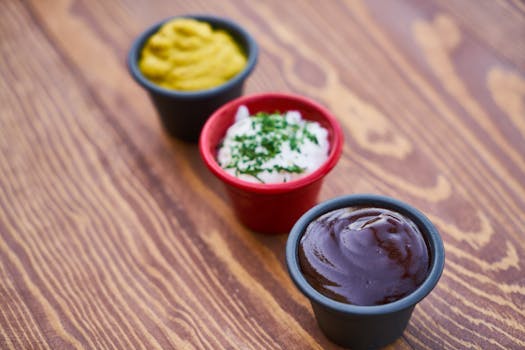Mastiffs are known for their massive size and gentle demeanor, making them a popular choice for families and dog enthusiasts alike. But as with any breed, they come with unique needs and challenges. Whether you’re considering adopting a Mastiff or you’re already a proud Mastiff parent, understanding their characteristics and care requirements is essential to keeping them happy and healthy.
🐾 Breed Snapshot
Mastiffs, often referred to as "gentle giants," are a group of large dog breeds that include the English Mastiff, Bullmastiff, and Neapolitan Mastiff, among others. These dogs are known for their impressive size, protective nature, and affectionate temperament.
- Size: Typically between 120–230 pounds, with males being larger than females.
- Height: Around 27–30 inches at the shoulder.
- Lifespan: 6–10 years.
- Coat: Short, dense, and easy to maintain; common colors include fawn, brindle, and apricot.
- Temperament: Loyal, protective, and calm, but can be stubborn.
Despite their intimidating appearance, Mastiffs are incredibly affectionate with their families and are known for their patience with children. However, their size and strength mean they require proper training and socialization from an early age.
🧬 Personality & Behaviour
Mastiffs are deeply devoted to their families and thrive on human companionship. Their protective instincts make them excellent guard dogs, but they are rarely aggressive without cause. These dogs are naturally calm and laid-back, preferring to lounge around the house rather than engage in high-energy activities.
While Mastiffs are generally friendly, their size and protective nature mean they can be wary of strangers. Early socialization is key to ensuring they grow into well-rounded and confident adults. Training can be a challenge due to their stubborn streak, but patience and positive reinforcement go a long way with this intelligent breed.
- Good with Kids: Yes, but supervision is necessary due to their size.
- Good with Other Pets: Usually, but socialization is crucial.
- Activity Level: Low to moderate; they enjoy daily walks but are not overly energetic.
🧼 Health & Grooming Needs
Mastiffs are relatively low-maintenance when it comes to grooming, but their health needs require close attention. Due to their size, they are prone to certain health issues that all owners should be aware of.
Common health concerns include:
- Hip and Elbow Dysplasia: A common issue in large breeds, causing joint pain and mobility problems.
- Bloat (Gastric Dilatation-Volvulus): A life-threatening condition where the stomach twists; immediate veterinary care is required.
- Heart Disease: Mastiffs are prone to cardiomyopathy, which affects heart function.
- Obesity: Overfeeding can lead to excessive weight gain, which strains their joints and overall health.
Grooming tips:
- Brush their short coat weekly to reduce shedding and keep their skin healthy.
- Clean their facial folds regularly to prevent irritation and infections, especially in breeds like the Neapolitan Mastiff.
- Trim their nails every 4–6 weeks to avoid overgrowth and discomfort.
- Brush their teeth 2–3 times a week to maintain good oral health.
Regular vet check-ups are essential for monitoring their health and catching any issues early. Mastiffs also benefit from a high-quality diet tailored to large breeds, which helps support their joints and overall well-being.
💡 Vet Tips for Pet Parents
Caring for a Mastiff requires a commitment to meeting their physical, emotional, and health needs. Here are some practical tips to help you provide the best care for your gentle giant:
- Start Training Early: Mastiffs are strong and can be stubborn, so early training and socialization are crucial. Focus on positive reinforcement techniques and consistency.
- Provide Joint Support: Large breeds like Mastiffs benefit from supplements containing glucosamine and chondroitin to support joint health.
- Manage Their Diet: Feed a balanced diet designed for large breeds to prevent obesity and support their unique nutritional needs.
- Exercise Moderately: While Mastiffs don’t need intense physical activity, daily walks and light playtime are important for their physical and mental health.
- Watch for Bloat: Feed smaller, more frequent meals and avoid vigorous activity right after eating to reduce the risk of bloat.
- Provide Plenty of Space: Mastiffs need room to move around comfortably, so ensure your home and yard are suitable for their size.
Owning a Mastiff can be incredibly rewarding, but it’s important to be prepared for the responsibility that comes with their size and unique care requirements. With proper attention and love, they’ll be a loyal and gentle companion for years to come.
FAQs
Q: Are Mastiffs good apartment dogs?
A: While Mastiffs are calm and don’t require excessive exercise, their large size makes them better suited for homes with plenty of space. If you live in an apartment, ensure they get daily walks and have a comfortable area to rest.
Q: How much do Mastiffs eat?
A: Mastiffs can eat 6–10 cups of high-quality dog food per day, depending on their size, age, and activity level. Always consult your vet to determine the right portion size for your dog.
Q: Do Mastiffs drool a lot?
A: Yes, Mastiffs are known for drooling, especially after eating or drinking. Keep a towel handy to wipe their face as needed.
Book a $49 online vet consultation at https://www.dialavet.com for fast, expert advice.























